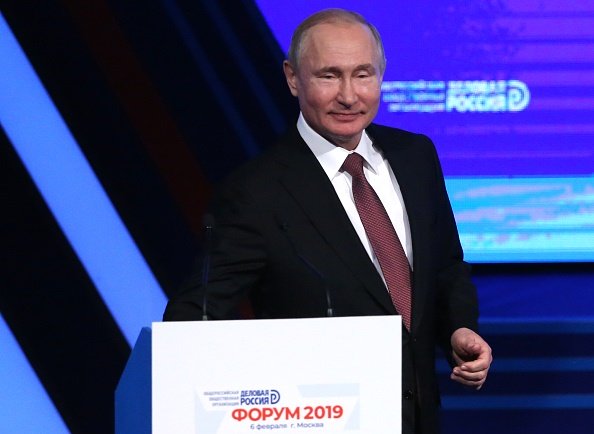

Russian President Vladimir Putin will take part in a peace conference on Libya in Germany on Sunday, as world powers step up efforts to find a lasting ceasefire.
Ahead of the peace conference Libya’s military strongman Khalifa Haftar, who Moscow is accused of supporting in Libya’s conflict, thanked Putin for his peace efforts, the Kremlin said.
“On January 19 Russian President Vladimir Putin will visit Berlin to take part in the International conference on Libya,” the Kremlin said.
The peace talks in Berlin will focus on stopping the fighting and launching a “broad political dialogue” under the auspices of the United Nations, the Kremlin added in a statement.
Libya has been in turmoil since dictator Moamer Kadhafi was killed in a 2011 NATO-backed uprising.
MUST READ | Turkey threatens to ‘teach lesson’ to Libya’s Haftar after peace deal snub
Last April, an assault on Tripoli by military strongman Khalifa Haftar’s forces sparked fighting that has killed more than 280 civilians and 2 000 fighters, displacing thousands.
In another statement, the Russian presidential administration said Haftar had thanked Putin for his efforts to end fighting in the war-ravaged country.
“Vladimir Putin, my dear friend!” Haftar said in a letter to Putin, quoted by the Kremlin.
“I express my personal gratitude and appreciation for the efforts of the Russian Federation to bring about peace and stability in Libya,” Haftar was quoted as saying.
ALSO READ | Algerian president calls Libya’s Tripoli a ‘red line’
Earlier this week, Libya’s warring sides – Haftar and the head of Tripoli’s UN-recognised government Fayez al-Sarraj – attended talks in Moscow but Haftar left without signing a permanent truce.
He told Putin he fully supported “the Russian initiative to hold peace talks in Moscow which he added “should lead to peace in Libya”.
Haftar also said he was ready to visit Russia again to continue dialogue.
Earlier in the day, Russia’s acting foreign minister Sergei Lavrov said preparations for the peace conference were nearly ready but lamented that the war-scarred country’s rivals refused to speak to each other
